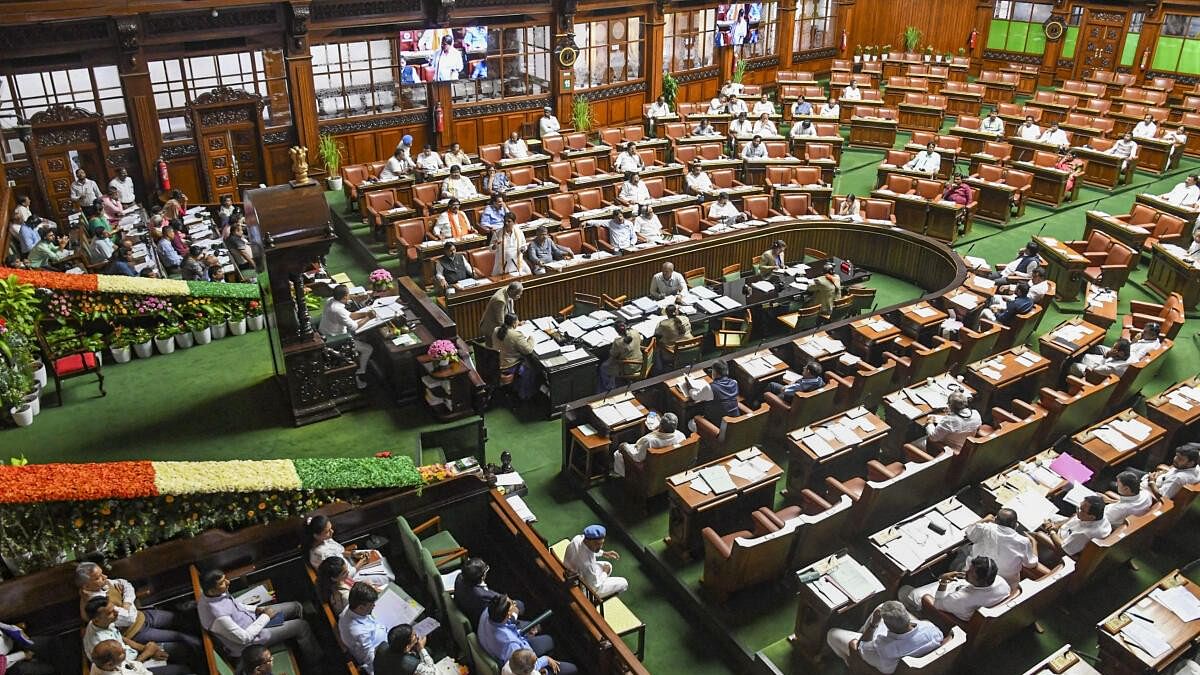
Members during the Karnataka Assembly session, in Bengaluru.
Credit: PTI File Photo
The Assembly on Tuesday passed a Bill to levy cess on movie tickets to fund welfare programmes for cine and cultural activists.
Piloting the Karnataka Cine and Cultural Activists (Welfare) Bill, Labour Minister Santosh Lad said the proposed legislation coincides with the centenary celebration of ‘Sati Sulochana’, the first Kannada talkie film released in 1934.
“There are many unorganised workers engaged in the cinema industry. Camerapersons, side dancers, workers...they have no economic viability,” Lad said. India’s film industry has 2.2 billion ticket buyers.
“In 2018, the Kannada film industry came out with 224 movies,” he said.
The Bill intends to help the growth of the Kannada film industry and those coming under the unorganised sector.
“On every ticket buyer, we are charging a minimum of one per cent and maximum of two per cent. It won’t be a big burden. On top of this, the government will provide funds to provide welfare,” Lad said.
The minister estimated that people in the state buy movie tickets worth Rs 4 crore per annum.
“There are about 50,000 people working in the cinema industry. If allied sectors are counted, then there are about 70,000 people,” he said.
BJP opposes two Bills
The Assembly also passed the Karnataka Legislature (Prevention of Disqualification) (Second Amendment) Bill amid opposition by the BJP.
The Bill exempts the offices of the CM’s political secretary-I and II, the CM’s financial advisor, the CM’s policy & planning advisor and deputy chairperson of the Karnataka State Policy & Planning Commission from incurring disqualification for being lawmakers.
“When there’s a finance department, what’s the need for a financial advisor? It’s a big insult to Chief Minister Siddaramaiah, who has presented 14 budgets. This is just to accommodate those ineligible to become ministers at taxpayers’ expense. This is certainly not healthy,” BJP’s Suresh Kumar said.
The BJP also walked out opposing the passage of the Karnataka Cooperative Societies (Amendment) Bill. The BJP was against a provision in the Bill that empowers the government to nominate three persons -- one SC/ST, one woman and one from other categories - on the board of every assisted society. The BJP alleged that this would give the ruling Congress control over cooperative societies, which the government denied.